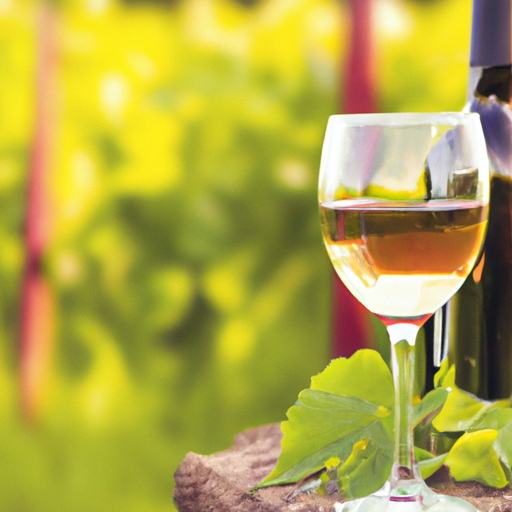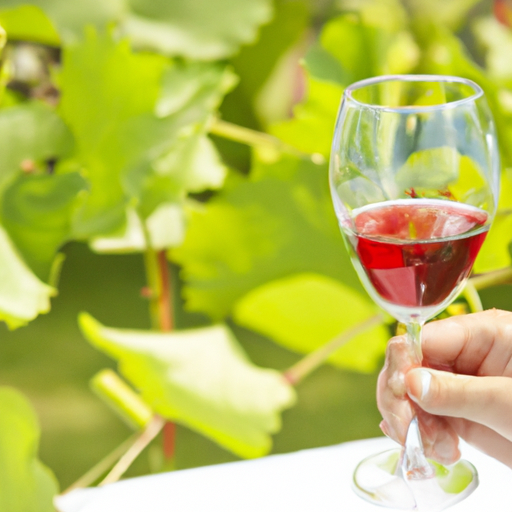Have you ever wondered how food and wine festivals work? If so, you’re in luck! In this article, we’re going to dive into the exciting world of food and wine festivals and uncover the secrets behind these lively events. Whether you’re a foodie or a wine enthusiast, this guide will help you understand the ins and outs of these festivals and make the most out of your experience.
Food and wine festivals are a celebration of culinary delights and the art of winemaking. These events bring together renowned chefs, wineries, and food vendors to showcase their creations and provide a unique experience for attendees. From tasting sessions and cooking demonstrations to wine pairing workshops and live entertainment, there is something for everyone at a food and wine festival. In this article, we will explore the different components of these festivals, such as ticketing, tasting tokens, and the various activities and events you can expect to find. So, sit back, relax, and get ready to embark on a gastronomic journey like no other!
A Guide to Understanding Food and Wine Festivals
Food and wine festivals have become increasingly popular in recent years, attracting foodies and wine enthusiasts from all over the world. These festivals provide a unique opportunity for people to come together and indulge in a delightful combination of delicious cuisine and fine wines. In this guide, we will delve into the world of food and wine festivals, exploring their origins, types, activities, benefits, challenges, and even their role in promoting sustainability.

What are Food and Wine Festivals?
Definition and purpose of food and wine festivals
Food and wine festivals are events that celebrate the culinary arts, bringing together food and wine producers, chefs, and enthusiasts in a festive atmosphere. These festivals typically offer a variety of activities such as tastings, pairings, cooking demonstrations, and gastronomic competitions. The purpose of these events is to showcase the best of local and international cuisine, promote culinary tourism, and highlight the wine industry.
History and origins of food and wine festivals
Food and wine festivals have a long and rich history, dating back centuries. In ancient times, civilizations would gather to celebrate the harvest and pay tribute to deities associated with agriculture and fertility. These celebrations often included feasts and libations, similar to the festivities seen in modern food and wine festivals.
One of the earliest recorded food and wine festivals took place in ancient Greece, where the god Dionysus was revered as the god of wine and winemaking. The festival, known as the Dionysia, involved wine tastings, theatrical performances, and processions.
In more recent history, food and wine festivals gained popularity in Europe during the Middle Ages. Monastic orders would host feasts and fairs to celebrate the abundance of food and wine produced by their vineyards and farms. These events served not only as religious celebrations but also as opportunities for communities to come together and enjoy the fruits of their labor.
Popular Food and Wine Festivals around the World
International food and wine festivals
Food and wine festivals have become a global phenomenon, with events taking place in various countries around the world. One of the most renowned international festivals is the Taste of Chicago, held annually in Illinois, United States. This festival attracts over a million visitors who indulge in a diverse array of culinary delights, showcasing the city’s vibrant food scene.
Another notable international festival is the Vendemmia, held in Tuscany, Italy. This festival celebrates the region’s wine harvest, offering tastings of fine Italian wines and traditional Tuscan cuisine. Visitors have the opportunity to immerse themselves in the rich culinary heritage of Tuscany, while enjoying breathtaking views of the vineyards.
Regional food and wine festivals
In addition to international festivals, many regions within countries also host their own food and wine celebrations. For example, the Okanagan Wine Festival in British Columbia, Canada, showcases the wines produced in the region’s vineyards. Visitors can participate in tastings, wine pairing dinners, and vineyard tours, all while surrounded by the stunning beauty of the Okanagan Valley.
In France, the Bordeaux Wine Festival is a prominent event that attracts wine lovers from around the world. This festival allows visitors to explore the famous Bordeaux vineyards, taste exceptional wines, and discover the rich cultural heritage of the region. The festival culminates in a grand fireworks display, illuminating the city’s historic waterfront.
Types of Food and Wine Festivals
Wine-focused festivals
Wine-focused festivals are dedicated to celebrating the art of winemaking. These events often feature vineyard tours, tastings, and seminars led by renowned winemakers. The Wine Spectator’s Grand Tour is a prominent wine-focused festival that takes place in several cities worldwide. It offers guests the opportunity to sample a wide range of award-winning wines from around the globe.
Cuisine-focused festivals
Cuisine-focused festivals highlight the diversity and creativity of culinary traditions. These events often feature cooking demonstrations, food tastings, and opportunities to meet celebrity chefs. The Melbourne Food and Wine Festival in Australia is a prime example of a cuisine-focused festival. It showcases the city’s vibrant food scene, with events ranging from gourmet dinners to street food markets.
Farm-to-table festivals
Farm-to-table festivals celebrate the connection between farmers, chefs, and consumers. These events promote sustainable farming practices and emphasize the use of locally sourced ingredients. The Farm to Fork Festival in Sacramento, California, is a popular farm-to-table event that showcases the region’s agricultural bounty. Visitors can enjoy farm tours, cooking demonstrations, and tastings of freshly harvested produce.
Activities and Events at Food and Wine Festivals
Tastings and pairings
Tastings and pairings are among the most anticipated activities at food and wine festivals. Attendees have the opportunity to sample a wide variety of wines, often guided by knowledgeable sommeliers. These tastings allow participants to explore different grape varieties, regions, and styles, expanding their wine knowledge and palate.
Pairing sessions are another popular activity, where experts guide attendees through the art of matching wines with specific dishes. These sessions enhance the dining experience by highlighting the interplay between flavors, textures, and aromas, creating harmonious combinations.
Cooking demonstrations
Food and wine festivals often feature cooking demonstrations by renowned chefs, providing valuable insights into the culinary world. These demonstrations showcase various cooking techniques, ingredients, and innovative recipes. Attendees can learn new cooking skills, gather inspiration, and even interact with the chefs, asking questions or requesting tips.
Wine seminars
Wine seminars are educational sessions led by industry experts, covering topics such as wine regions, grape varieties, winemaking techniques, and wine-specific trends. These seminars offer a deeper understanding of the world of wine, allowing participants to enhance their appreciation and knowledge.
Gastronomic competitions
Gastronomic competitions are a thrilling element of food and wine festivals, pitting chefs against each other in a friendly culinary showdown. These competitions showcase the creativity, skill, and craftsmanship of chefs as they create exquisite dishes under time constraints and using specific ingredients. Attendees can witness these culinary battles unfold and indulge in the resulting dishes.

Planning Your Visit to a Food and Wine Festival
Choosing the right festival to attend
With so many food and wine festivals taking place around the world, choosing the right one to attend can be challenging. Consider your preferences, such as the type of cuisine or wine you enjoy, the location, and the festival’s reputation. Research the festival’s website, read reviews, and consult with fellow food and wine enthusiasts to help make an informed decision.
Getting tickets and accommodations
Once you have chosen a festival, securing tickets and accommodations is the next step. Many festivals sell tickets online, allowing you to plan in advance. Additionally, popular festivals often attract a large audience, so booking accommodations well in advance is crucial to secure a comfortable stay near the festival grounds.
Preparing your schedule
To make the most of your festival experience, it is essential to prepare a schedule beforehand. Study the festival program, noting the dates and times of activities that interest you the most. Consider attending the events and activities that align with your preferences and allocate enough time to explore the festival grounds, taste various dishes, and engage with vendors and exhibitors.
Budgeting for expenses
Attending food and wine festivals can be a significant investment, so it is important to plan your budget accordingly. Consider the cost of tickets, accommodations, transportation, meals, and any additional activities or merchandise you may wish to indulge in. Setting a budget and sticking to it will help ensure a more enjoyable and stress-free experience.
The Role of Food and Wine in Festivals
Highlighting local and international cuisine
Food and wine festivals provide a platform for both local and international cuisines to shine. Local culinary talents have the opportunity to showcase their creativity, traditional recipes, and unique flavors. International chefs bring their own cultural influences, introducing new flavors and techniques to the festival’s attendees. These festivals allow visitors to embark on a culinary journey, experiencing an array of flavors and expanding their culinary horizons.
Promoting culinary tourism
Food and wine festivals have become a driving force behind culinary tourism. They attract visitors from near and far who seek to explore the unique flavors and cultural heritage of different regions. These festivals often collaborate with local tourism boards, promoting the host city or region as a food and wine destination. Visitors can immerse themselves in the local food scene, discover hidden gems, and create memorable culinary experiences.
Showcasing the wine industry
Food and wine festivals play a vital role in promoting the wine industry. Winemakers have the opportunity to showcase their wines to a diverse audience, building brand recognition and establishing new connections. Festivals often feature wine tasting sessions, seminars, and vineyard tours, allowing attendees to appreciate the art of winemaking and deepen their knowledge of different wine regions and styles.
Benefits of Attending a Food and Wine Festival
Exploring new flavors and cuisines
Attending a food and wine festival provides an excellent opportunity to explore new flavors and cuisines. From traditional dishes to innovative creations, these festivals offer a diverse range of culinary delights. Attendees can indulge in a vast selection of dishes, allowing them to broaden their palate and discover new favorites.
Learning about food and wine pairing
Food and wine pairing is an art that can greatly enhance the dining experience. Food and wine festivals offer the chance to learn from experts who share their knowledge and guide participants through the intricacies of pairing flavors. Discovering the perfect wine to accompany a specific dish can elevate the taste sensations and create a harmonious balance.
Networking and connecting with industry professionals
Food and wine festivals bring together culinary professionals, winemakers, and industry insiders from around the world. Attending these events allows you to network with individuals who share your passion for food and wine. Engaging in conversations, participating in seminars, and interacting with exhibitors can help you establish connections, gain valuable insights, and potentially open doors to new opportunities within the industry.
Challenges at Food and Wine Festivals
Managing large crowds
Food and wine festivals can attract large crowds, creating logistical challenges. Ensuring a smooth flow of visitors, managing queues, and maintaining an enjoyable experience for all can be demanding. Organizers must work diligently to provide ample space, organize seating areas, and employ efficient crowd management strategies to mitigate overcrowding.
Ensuring food and wine quality
With a wide array of vendors and exhibitors at food and wine festivals, ensuring the quality of food and wine becomes a priority. Festival organizers must carefully select vendors, ensuring they meet strict quality and safety standards. Regular inspections, monitoring, and obtaining feedback from attendees are essential in maintaining high-quality offerings throughout the event.
Logistical considerations
Organizing a food and wine festival requires meticulous planning and attention to detail. Logistics ranging from securing suitable venues to coordinating transportation and managing vendor setups can be daunting. Festival organizers must carefully plan these logistics to ensure a seamless experience for both attendees and participants.
Sustainability and Food and Wine Festivals
Efforts in reducing food waste
Food and wine festivals are increasingly making efforts to reduce food waste, a crucial element of sustainability. Festivals partner with local food banks and charities, donating excess food to those in need. Additionally, some events implement composting and recycling initiatives, reducing the environmental impact of waste generated during the festival.
Promoting sustainable farming practices
Many food and wine festivals prioritize sustainability by promoting and supporting sustainable farming practices. These festivals often showcase local farmers who adhere to organic and biodynamic farming methods, highlighting the importance of environmental stewardship. By promoting sustainable farming practices, festivals contribute to the preservation of ecosystems and the sustainability of the food and wine industry.
Conclusion
Food and wine festivals offer a unique and exciting experience for individuals passionate about culinary delights. From savoring diverse flavors and exploring new cuisines to attending tastings and participating in engaging activities, these festivals provide an unparalleled opportunity to celebrate the art of food and wine.
By attending food and wine festivals, you not only embark on a sensory journey but also support local and international culinary talent and the wine industry. Engaging with industry professionals and expanding your knowledge of food and wine can lead to new connections and opportunities within the culinary world.
While food and wine festivals present challenges such as managing large crowds and ensuring food and wine quality, efforts are being made to promote sustainability and reduce their environmental impact. By participating in these initiatives, festivals contribute to a more sustainable future, preserving ecosystems and fostering a greater appreciation for both the culinary arts and the environment.
So, whether you are a seasoned food and wine enthusiast or simply curious about the world of gastronomy, attending a food and wine festival is a must-do experience. Immerse yourself in the flavors, aromas, and cultural heritage offered at these events, and prepare to be captivated by the magic of food and wine.





